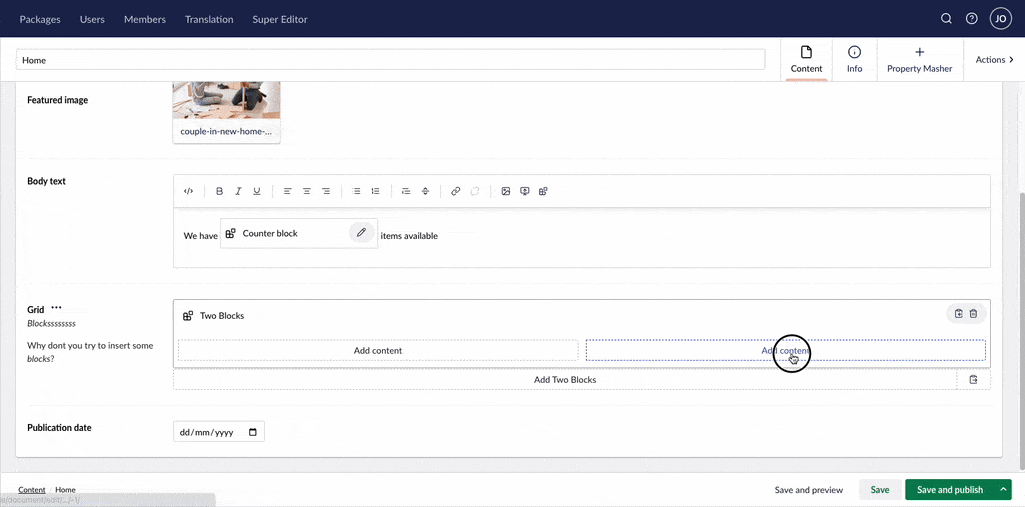I can certainly share the sentiment that there is a time and a place for the “advanced” setup with Vite and TypeScript. If you feel the need to go there, which is nice if you have more than a couple of custom views, then I can recommend using the dotnet template “umbraco-extension”, which gives you a nice RCL project already set up with Vite and TypeScript & optionally includes a dashboard example with API controllers:
dotnet new umbraco-extension --include-example
However, suppose you are in the business of a few custom views. In that case, you can get quite far following the tutorial Creating your First Extension, which has a section on vanilla JavaScript elements:
Building on top of that, I have constructed an example for a block custom view here that can show a text and an image field. You need to drop two files in wwwroot/App_Plugins/MyPackage:
First file: umbraco-package.json
{
"name": "Simple JS Extensions",
"version": "0.0.0",
"extensions": [
{
"type": "blockEditorCustomView",
"alias": "my.block",
"name": "My Block",
"element": "/App_Plugins/MyPackage/custom-block-view.js",
"forContentTypeAlias": "imageBlock"
}
]
}
Second file: custom-block-view.js
import { html, css, when } from '@umbraco-cms/backoffice/external/lit';
import { UmbLitElement } from '@umbraco-cms/backoffice/lit-element';
export class BlockCustomView extends UmbLitElement {
static properties = {
content: { type: Object },
settings: { type: Object },
}
render() {
return html`
<p><strong>Text:</strong> ${this.content?.text ?? 'No text'}</p>
${when(this.content?.image?.[0]?.mediaKey,
(unique) => html`<umb-imaging-thumbnail class="thumbnail" width="300" height="300" mode="crop" unique=${unique}></umb-imaging-thumbnail>`,
() => html`<p>No image</p>`
)}
`;
}
static styles = [
css`
:host {
display: block;
}
.thumbnail {
max-width: 300px;
max-height: 300px;
}
`,
];
}
export default BlockCustomView;
customElements.define('my-custom-block-view', BlockCustomView);
Here is a video showcasing it in action:
